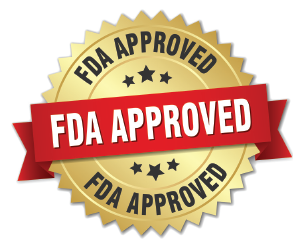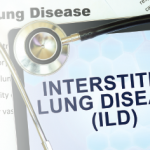
Aquir / shutterstock.com
The U.S. Food & Drug Administration (FDA) approved nintedanib for systemic sclerosis associated interstitial lung disease (SSc-ILD) on Sept. 6 after a randomized, controlled trial (SENSCIS) demonstrated significant benefit against placebo.1 At a cost of $96,000 per year, treatment reduced the adjusted annual rate of change in forced vital capacity (FVC) from –93.3 mL in the placebo group to –52.4 mL in the nintedanib group, or a “relative difference of 44%,” according to a press release from the manufacturer.2 (click here for a study summary.)
Rheumatologists and the media have been understandably enthusiastic about a new therapy for SSc-ILD. However, a closer analysis of the data may temper expectations.
Exaggeration of Effect
For starters, reporting the relative difference in FVC decline exaggerates the treatment effect. At one year, the FVC in both groups worsened. Patients treated with nintedanib declined by 1.4% compared with 2.6% in the placebo group—an absolute difference of only 1.2%. This more closely approximates the patient experience, which almost certainly did not approach a 44% improvement in quality of life. In fact, patients reported no subjective improvement at all. Neither the FACIT-Dyspnea (Functional Assessment of Chronic Illness Therapy—Dyspnea) nor the HAQ-DI (Health Assessment Questionnaire without Disability Index) differed between groups.
This should not be surprising; a 1.2% absolute decline of FVC does not meet any minimal clinically important difference thresholds.3,4 A stringent threshold of >10% was met by 7.0% in the nintedanib group and 8.3% in the placebo group (1.3% absolute difference; number needed to treat [NNT] of 77 patients). The difference for an FVC decline of >5% was larger, with a reduction of 20.6% in the nintedanib group and 28.5% in the placebo group (absolute difference of 7.9%; NNT of 13 patients). Even accepting a low bar for a minimal clinically important difference, 13 patients would need to be treated with nintedanib for one to benefit.
This modest effect shrinks among patients already receiving mycophenolate mofetil (MMF), the standard of care for SSc-ILD, which was taken by only half of the patients in this trial. Among these patients, the benefit of nintedanib fell from 41 mL less FVC decline per year to 26 mL less FVC decline per year. This was not a statistically significant difference. Similarly, nintedanib did not confer a significant benefit among patients with limited systemic sclerosis, who made up 48% of the population studied. Had this trial been performed on patients receiving background MMF or with limited systemic sclerosis, it may not have shown significant benefit or been approved by the FDA.

